26 Sep2019
By Govinda Budrow
The excerpt below is taken from an article originally published on the American Indian College Fund website and is reprinted with permission.
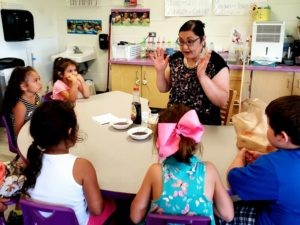
When it comes to STEM, it may be the roots that hold us in the field, the classroom, and in our love for science, technology, engineering, and mathematics.
As Native Americans, there has been a complicated history and relationship with formalized education. Beginning with boarding schools and day schools that mandated assimilation and rejection of Indigenous community languages and wisdom, the disruption has spanned for well over a century, with the abusive boarding school era coming to a close as late as the 1970s. Each generation since these boarding schools struggles with the false dichotomy that one can either be Indigenous or do well in school.
20 Sep2019
By Lynn M. Gangone
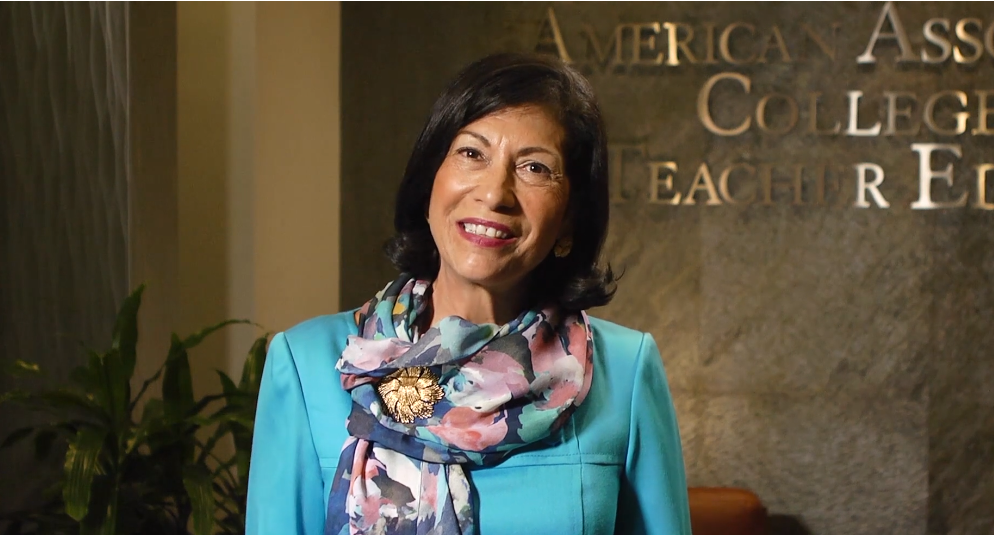
America is a country of immigrants. Through each wave of immigration, our public schools incorporate immigrant children into the fabric of our country. Our public schools serve as a cultural incubator to aid and nurture acceptance of diversity. Our local classrooms should be a microcosm of a global demographic. We, as educators, need to harness that belief for our teachers and the students they teach and guide.
How do America’s immigration challenges impact schools?
The challenge is that there are undocumented students entering U.S. schools, colleges, and universities who were not given the option to decide for themselves whether they wanted to come to this country. They have been incorporated into society, but are affected by current practices that impact their safety and security. It is projected that by the year 2040, one in every three children in the United States will grow up in an immigrant household (Suárez-Orozco, Suárez-Orozco, & Todorova, 2008). It begs the question: How do we work with those students?
Educators, school support staff, and service providers are often the first individuals in whom a student and/or family confides and reveals that they are undocumented. Recent efforts to identify undocumented parents and children in the United States challenge public schools in their efforts to meet the needs of all children residing within their school districts. Public schools are often embroiled in politically and legally sensitive situations, in which they must balance their responsibilities to serve immigrant and undocumented children, while meeting the expectations of local authorities to identify undocumented individuals.
What role do educators play in supporting immigrant children and their families?
19 Sep2019
By Kimberly Underwood
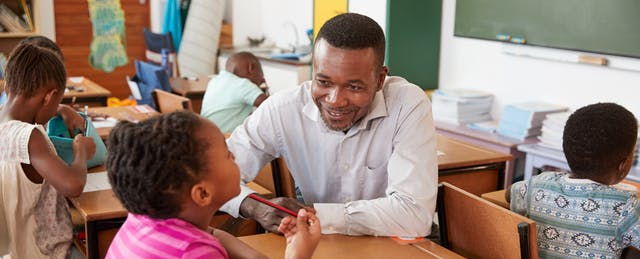
This article and photo originally appeared in EdSurge and are reprinted with permission.
Two percent. That figure may seem insignificant, until you understand the context. Despite students of color representing more than half the student population, Black males make up only two percent of the teacher workforce. So as it happens, that statistic is very significant as this lack of diversity has negative implications for all students.
For years, Black males have been underrepresented in PK-12 education. While there have been many efforts to diversify classrooms by adding more Black male educators, there are still obstacles preventing us from successfully reaching this goal. Now these educators are speaking up and their voices are sounding the alarm for education diversity.
For years, Black males have been underrepresented in PK-12 education.
12 Sep2019
By Katrina Norfleet
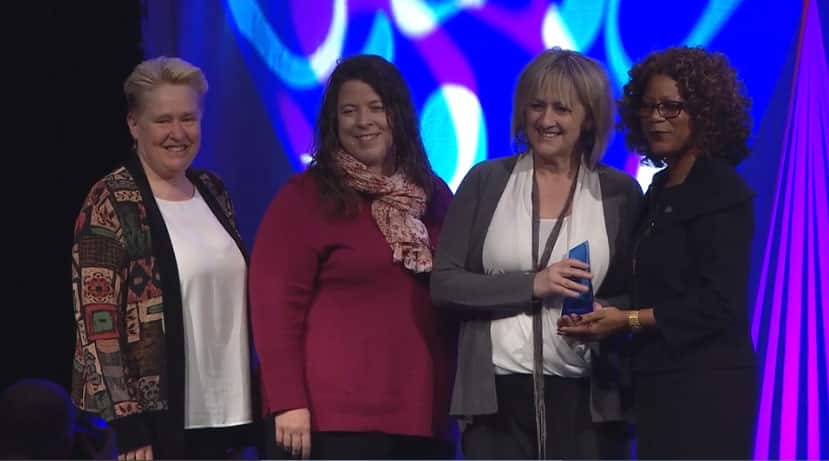
The annual Best Practice Award in Support of Multicultural Education and Diversity honors members for their outstanding work infusing diversity throughout all components of a school, college, or department of education (SCDE) as critical to quality teacher preparation and professional development. This award, sponsored by the Committee on Global Diversity, represents one of the nine categories of the annual AACTE Award Program that recognizes excellence in educator preparation.
This video features the 2018 Best Practice Award in Support of Multicultural Education and Diversity recipient, University of Colorado (UC) Denver School of Education and Human Development (SEHD). The Committee selected this program for it outstanding efforts in preparing teacher candidates from diverse, multicultural backgrounds to gain the foundational knowledge and experiences necessary to advocate for the educational equity for all children.
16 Aug2019
By Lynn M. Gangone
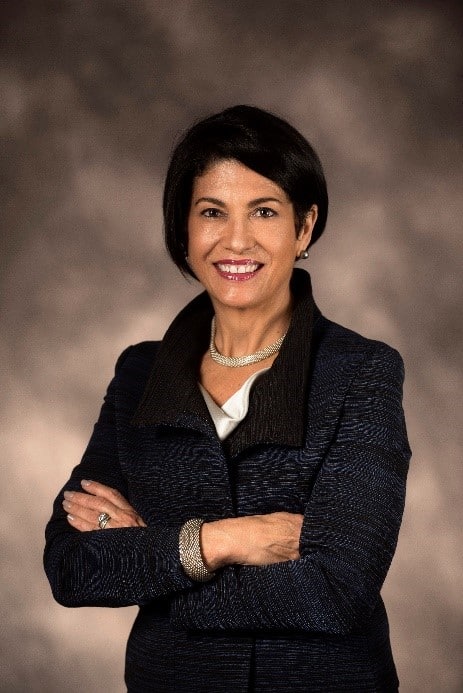 Educators and students are facing unprecedented times. The challenges both students and their teachers confront today vastly affects the efficacy of even the best educator’s efforts to create and foster students’ zeal for learning and to contribute to the society they will one day shape. Yet, educators must stay committed to fulfilling their social responsibility now more than ever before.
Educators and students are facing unprecedented times. The challenges both students and their teachers confront today vastly affects the efficacy of even the best educator’s efforts to create and foster students’ zeal for learning and to contribute to the society they will one day shape. Yet, educators must stay committed to fulfilling their social responsibility now more than ever before.
What Should Social Responsibility Look Like in the Teaching Profession?
This varies from educator to educator, so the answer to this question is complicated and multi-faceted.
Education is about opening minds, creating new knowledge. It is an expansive endeavor. In theory, education should provide us with the understanding and capacity of what it means to be a citizen of this nation and the world. Our nation’s founders understood the importance of an educated citizenry. Today, I believe that we need educators to support both a students’ academic development and citizen development.
16 Aug2019
By Amanda Wilkerson and Deshawn Chapman
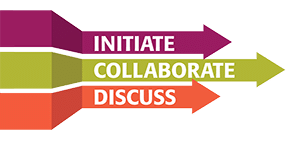 In the fall of 2019, educational leaders of AACTE will have another opportunity to access and join a meaningful Topical Action Group (TAG). The Urban Education TAG is brand new and serves as a special work group committed to establishing a storehouse of information with reliable resources to bolster and practically support urban educators. Additionally, exciting programming is already underway in the form of webinars, podcasts, research dissemination, and professional networking opportunities.
In the fall of 2019, educational leaders of AACTE will have another opportunity to access and join a meaningful Topical Action Group (TAG). The Urban Education TAG is brand new and serves as a special work group committed to establishing a storehouse of information with reliable resources to bolster and practically support urban educators. Additionally, exciting programming is already underway in the form of webinars, podcasts, research dissemination, and professional networking opportunities.
The timing of the group’s formation is significant. The TAG is launching during a period in our profession wherein education is rife with concerns. It is no secret that within our field there is growing inequality experienced by
13 Aug2019
By Katrina Norfleet

The September/October 2019 issue of the Journal of Teacher Education (JTE) is now available online, while printed copies are arriving in the mail to subscribers around the country. Below is a summary of the articles included in Vol. 70, Issue 4, 2019:
In “Teacher Agency and Resilience in the Age of Neoliberalism,” members of the JTE editorial team, Tonya Bartell, Christine Cho, Corey Drake, Emery Petchauer, and Gail Richmond, address how the articles in this issue provide insights into ways educator preparation programs can support teachers in developing and enacting agency. They discuss how making small shifts or adaptations in everyday teaching practices can create more just and equitable teaching and learning.
In the paper, “Whiteness as a Dissonant State: Exploring One White Male Student Teacher’s Experiences in Urban Contexts,” Stephanie Behm Cross of Georgia State University, Nermin Tosmur-Bayazit of Fitchburg State University, and Alyssa Hadley Dunn of Michigan State University, suggest that Whiteness itself is a dissonant state. The authors argue that
31 Jul2019
By Diane Angelucci
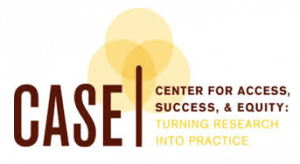 This article originally appeared in Rowan Today and is reprinted with permission.
This article originally appeared in Rowan Today and is reprinted with permission.
Even in the best school districts, obstacles to equal education and opportunities can hide far below the surface
To help districts unearth and address these issues, the Center for Access, Success and Equity (CASE) in Rowan University’s College of Education has forged equity-focused research practice partnerships with several school districts—one of CASE’s three research areas. CASE is establishing research as central to the College of Education in three ways — through partnerships with districts, through grant-funded research, and through the College’s Ph.D. program.
“I can’t speak enough about our experience with CASE,” said Piera Gravenor, superintendent of Delsea Regional School District, which has worked with CASE for the last two years.
26 Jul2019
By Katrina Norfleet
The Teacher Educator national peer-reviewed journal recently shared the top 10 most downloaded articles in the first three months of 2019. The most downloaded article in 2018 was “Current Issues in Teacher Education: An Interview with Dr. Linda Darling-Hammond” with 2,726 downloads. Other popular articles cover a range of topics including multicultural teacher education, perceptions of ELL students, student stress and coping, and teaching reflective practice. The full list of the top 10 articles are included in the table below.
AACTE President and CEO Lynn M. Gangone serves on Editorial Advisory Board of The Teacher Educator, a forum for promoting discussion among educators who seek to challenge existing boundaries in the field. The journal invites AACTE members to submit notable work on current
19 Jul2019
By Brian McNeill
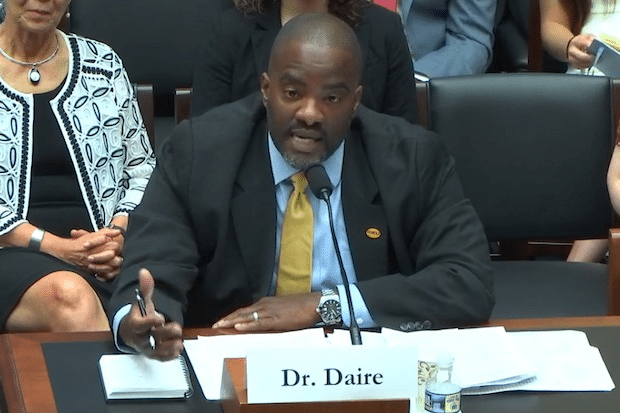
This article and photo originally appeared in VCU News and are reprinted with permission
Andrew Daire, dean of the School of Education at Virginia Commonwealth University, testified at the U.S. House Wednesday about how VCU is working to prepare high-quality, dedicated classroom teachers and encouraged Congress to support similar initiatives across the country.
“Immediate and innovative action is required to address the challenges in high-needs and low-performing schools with families living in generational poverty and disparities in student learning outcomes,” said Daire, testifying before a joint U.S. House Education and Labor Committee subcommittee hearing on “Educating our Educators: How Federal Policy Can Better Support Teachers and School Leaders.”
“The challenges faced by many of our schoolchildren, and in many of our schools, are not average and will not be met with average efforts,” Daire said in his prepared testimony. “We need to be bold and aspirational in our desires and efforts to address these challenges.”
17 Jul2019
By Jerrica Thurman and Donna Sacco
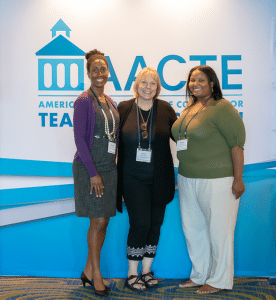 AACTE’s Jerrica Thurman first met Donna Sacco in 2015. Sacco was one of three doctoral students from George Mason University (GMU) who worked as an AACTE education intern, assisting in advocating for high-quality preparation programs and with its marketing communications. Thurman was pleasantly surprised when she saw Sacco at AACTE’s 2019 Washington Week with her two Holmes doctoral students from the University of North Carolina at Charlotte (UNCC). It was during her AACTE internship that Sacco learned about the Holmes Program and determined to make a personal contribution to help diversify the teacher workforce by becoming a Holmes advocate. The following summary highlights an interview Thurman had with Sacco about her journey from an intern to a change agent in education.
AACTE’s Jerrica Thurman first met Donna Sacco in 2015. Sacco was one of three doctoral students from George Mason University (GMU) who worked as an AACTE education intern, assisting in advocating for high-quality preparation programs and with its marketing communications. Thurman was pleasantly surprised when she saw Sacco at AACTE’s 2019 Washington Week with her two Holmes doctoral students from the University of North Carolina at Charlotte (UNCC). It was during her AACTE internship that Sacco learned about the Holmes Program and determined to make a personal contribution to help diversify the teacher workforce by becoming a Holmes advocate. The following summary highlights an interview Thurman had with Sacco about her journey from an intern to a change agent in education.
What piqued your interest in the issues of teacher diversity as a doctoral student at George Mason University and student intern at AACTE?
Before my doctoral program, I was a special educator with a master’s degree in bilingual special education. For my entire career, my focus has been on culturally and linguistically responsive instructional practices. Part of my drive came from the stories my father told me about the obstacles he experienced in his childhood as the son of Italian immigrants. He was a brilliant man but never went to college. He had one advocate who helped mentor him in appreciating the arts but had no teachers who were advocates, role models, or who understood his background. Once I began researching teacher education, I was surprised to learn that the teaching force is composed of roughly 80% white female teachers. How had I missed that obvious point? I am a white female who was teaching mostly boys of
11 Jul2019
By Jerrica Thurman
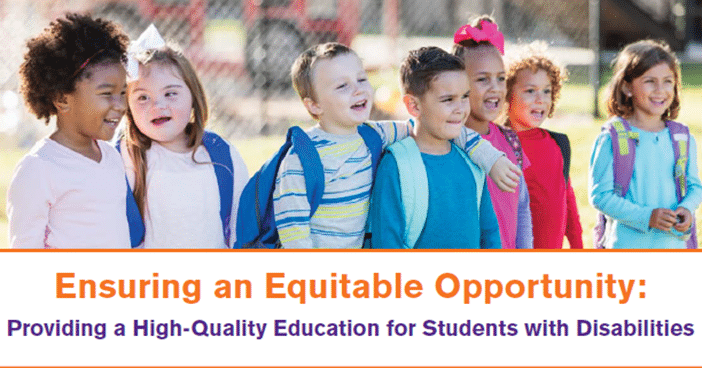
The Council of Chief State School Officers (CCSSO) recently released Ensuring an Equitable Opportunity: Providing a High-Quality Education for Students with Disabilities, a report that details policy and practice considerations around individualized education plans chiefs and state education leaders can reflect upon and implement in ensuring all students, especially students with disabilities, have access to a high-quality education. Students with disabilities are provided with an individualized education program (IEP) to ensure they receive specially-designed instruction and related services. The IEP is the primary mechanism for ensuring students with disabilities receive the right educational content and rigor at the right moment in their education.
The Education for All Handicapped Children Act of 1975 marked an historic win for civil rights when the doors to public education were opened for all students. For the first time, children with disabilities had access to a public education and the hope of a productive and fulfilling future. Today, the Individuals with Disabilities Education Act of 2004 (IDEA), the most recent iteration of that law, aims to deliver on that promise; namely, that all students with disabilities have equitable access to a free appropriate public education (FAPE) in the least restrictive environment.
01 Jul2019
By Katrina Norfleet
AACTE board member Donald Easton-Brooks is widely known as a scholar of educational policy and culturally responsive teaching. This year, he released his book Ethnic Matching: Academic Success of Students of Color. In a recent Q&A with AACTE President and CEO Lynn M. Gangone, Easton-Brooks talked about the book and how his research shows diversifying the teaching profession will ultimately improve student’s success. The following summary highlights the conversation.
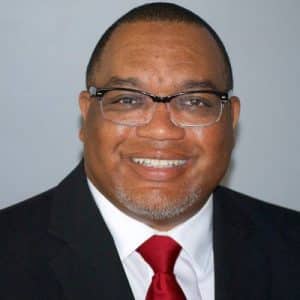 How would you describe the concept of ethnic matching and its importance to student learning?
How would you describe the concept of ethnic matching and its importance to student learning?
What ethnic matching initially suggests is that teachers of color can play a significant role in enhancing the academic experience of students of color. As this research and other research progress, findings have shown that teachers of color can play a significant role in also enhancing the academic experience of white students and can assist in enhancing a more culturally responsive profession as a whole. Therefore, the concept and research related to the concept suggest that we need to diversify teacher education. Mainly because as our communities are becoming more diverse, we are seeing our public schools also becoming more diverse. Yet what is happening is that our educator profession is not growing at a similar rate as these communities of students. The research around the concepts shows that perceived knowledge or knowledge from a preceptive culturally lens can play a role in students’ understanding of concepts, learning, and processing of information. This often can lead to these students being misinterpreted by teachers and feeling somehow misunderstood by teachers if they do not have that cultural lens to understand them. That is what teachers of color can bring to the table that can be of assistance to educational systems.
12 Jun2019
By Gretchen Wright
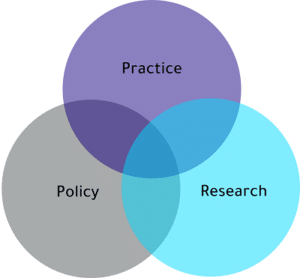 Research shows that teachers are the number one in-school factor affecting student outcomes and principals are the number two factor. One important metric for those outcomes is how well and how equitably our nation’s diverse students are able to navigate our increasingly global and technologically complex world, where skills like critical thinking, collaboration, communication, and being able to apply knowledge in a range of contexts are crucial to success. Today, Learning Policy Institute and Bank Street Graduate School of Education have announced the launch of the Educator Preparation Laboratory (EdPrepLab), a new initiative to help educator preparation programs ensure that new teachers and leaders are able to provide all k-12 students with the kind of deeper learning that helps them develop those skills.
Research shows that teachers are the number one in-school factor affecting student outcomes and principals are the number two factor. One important metric for those outcomes is how well and how equitably our nation’s diverse students are able to navigate our increasingly global and technologically complex world, where skills like critical thinking, collaboration, communication, and being able to apply knowledge in a range of contexts are crucial to success. Today, Learning Policy Institute and Bank Street Graduate School of Education have announced the launch of the Educator Preparation Laboratory (EdPrepLab), a new initiative to help educator preparation programs ensure that new teachers and leaders are able to provide all k-12 students with the kind of deeper learning that helps them develop those skills.
EdPrepLab brings together 15 of the nation’s leading teacher and principal preparation programs to collaborate on further developing and documenting models for preparation that equip educators to advance deeper learning and equity, and that can inform other programs across the nation. The initiative will also support research to improve preparation programs and work with policymakers at federal, state, and local levels to help leverage policies that encourage the use of research-based practices that ensure new teachers and school leaders are well-equipped to provide deeper learning and to build the next generation of equitable schools and instructional education practices.
“Our world has changed significantly since the U.S. education system was first developed, and students today need an education that supports and prepares them for that more diverse, technology-driven, knowledge-based society,” said Learning Policy Institute President Linda Darling-Hammond. “That means we need to prepare teachers and school leaders to provide this kind of education. Fortunately, we have research to guide the way. There is a wealth of new knowledge about the science of learning and development, how social and emotional skills support academic learning, and how to ensure that students really understand what they have learned.”
10 Jun2019
By University of Tennessee News
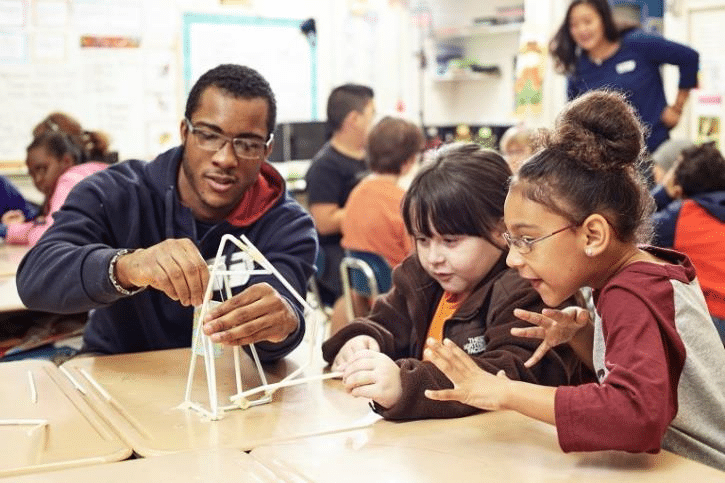
This article and photo originally appeared on the University of Tennessee News website and are reprinted with permission.
A new program aimed at increasing the number of licensed teachers from diverse backgrounds will launch this summer in the College of Education, Health, and Human Sciences.
The program, Increasing Teacher Equity to Address Community High Needs (I-TEACH), is funded by a Tennessee Higher Education Commission grant recently awarded to the college to support diversity in education and to fill critical teaching shortages across the state. The two-year program supports 12 eligible teacher candidates for 33 hours of coursework and clinical practice. Candidates who complete the program will graduate with a master’s degree in teacher education.











 Educators and students are facing unprecedented times. The challenges both students and their teachers confront today vastly affects the efficacy of even the best educator’s efforts to create and foster students’ zeal for learning and to contribute to the society they will one day shape. Yet, educators must stay committed to fulfilling their social responsibility now more than ever before.
Educators and students are facing unprecedented times. The challenges both students and their teachers confront today vastly affects the efficacy of even the best educator’s efforts to create and foster students’ zeal for learning and to contribute to the society they will one day shape. Yet, educators must stay committed to fulfilling their social responsibility now more than ever before. In the fall of 2019, educational leaders of AACTE will have another opportunity to access and join a meaningful Topical Action Group (TAG). The
In the fall of 2019, educational leaders of AACTE will have another opportunity to access and join a meaningful Topical Action Group (TAG). The 
 This article originally appeared in
This article originally appeared in 



 Research shows that teachers are the number one in-school factor affecting student outcomes and principals are the number two factor. One important metric for those outcomes is how well and how equitably our nation’s diverse students are able to navigate our increasingly global and technologically complex world, where skills like critical thinking, collaboration, communication, and being able to apply knowledge in a range of contexts are crucial to success. Today, Learning Policy Institute and Bank Street Graduate School of Education have announced the launch of the
Research shows that teachers are the number one in-school factor affecting student outcomes and principals are the number two factor. One important metric for those outcomes is how well and how equitably our nation’s diverse students are able to navigate our increasingly global and technologically complex world, where skills like critical thinking, collaboration, communication, and being able to apply knowledge in a range of contexts are crucial to success. Today, Learning Policy Institute and Bank Street Graduate School of Education have announced the launch of the 